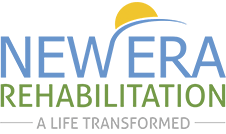
New Era Rehailitation Center Inc
Methadone Maintenance Treatment Program
Methadone is a synthetic opioid used in the treatment of opiate addiction. It is useful in substance abuse treatment because it possesses a cross-tolerance with other opiates such as heroin and OxyContin and its effects are long lasting. This means methadone decreases the response to harmful illicit drugs and can do so for up to 36 hours. Methadone can stabilize the symptoms of withdrawal and, in higher doses, it can block the euphoric effects of heroin, morphine, and similar drugs. As a result, properly managed methadone patients can reduce or stop their use of these substances altogether.
According to the Office of National Drug Policy Control, Methadone is a safe and efficacious treatment of narcotic dependence and withdrawal. This synthetic narcotic has been used to treat opiate addiction for over thirty years.
Suboxone (Buprenorphine) Treatment
Suboxone is the first opioid medication approved under DATA 2000 for the treatment of opioid dependence in an office-based setting. Suboxone can also be dispensed for take-home use, just as any other medication.
The primary active ingredient in Suboxone is buprenorphine, a partial opioid agonist. Partial opioid agonists have limit effects as compared to those produced by full opioid agonists, such as oxycodone or heroin. Suboxone also contains naloxone, an opioid antagonist.
The naloxone in Suboxone is there to discourage people from dissolving the tablet and injecting it. When Suboxone is placed under the tongue as directed, very little naloxone reaches the bloodstream, so what the patient feels are the effects of the buprenorphine. However, if naloxone is injected, it can cause a person dependent on a full opioid agonist to quickly go into withdrawal.
At the appropriate dose, Suboxone may be used to:
- Reduce illicit opioid use
- Help patients stay in treatment
- Suppress symptoms of opioid withdrawal
- Decrease cravings for opioids
Intensive Outpatient Counseling
New Era Rehabilitation Center’s Intensive Outpatient Program (IOP) is a small group-based recovery program that lasts between 12 and 16 weeks. It requires attendance to three-hour group meetings that meet three times a week. IOP programs are an exhaustive approach to recovery that still allow the patient to maintain a normal work or school schedule while also being fiercely committed to his or her recovery. As participants in the IOP, patients will work with Certified Addiction Counselors (CAC), Licensed Alcohol and Drug Counselors (LADC), or counselors possessing a masters degree.
The Intensive Outpatient Program (IOP) has several groups that may be attended as part of the mental heath component, including Early Recovery Skills groups, 12 Step Facilitation groups, Social Support groups, Anger Management groups, and Relapse Prevention groups as a part of after-care.
Groups
Early Recovery Skills
This group is aimed toward patients who are early in their recovery journey. It utilizes a multimedia approach to assist clients in understanding the changes they are about to undergo and developing the skills necessary for early recovery. Patients are taught how to reduce cravings, schedule time so as to minimize temptation, discontinue use of secondary substances, and use community support as a vehicle for successful recovery.
12 Step Facilitation
This group is consistent with active involvement in 12 step recovery programs such as Cocaine Addicts Anonymous, Narcotics Anonymous, and Alcoholics Anonymous. Based on
the principle that addiction is a disease of the mind, body, and spirit, the group promotes moving toward comprehensive recovery one day at a time, starting with complete abstinence from mood-altering substances. This particular method is based on acceptance, where patients realize they need help and cannot beat addiction alone, and surrender, where patients reach out for instruction and follow the course as specified.
Social Support
This group realizes that significant life change is the long term goal of treatment and recovery. It is based on the tenets of unconditional acceptance, inward reflection, open and honest interpersonal interaction, and commitment to change. As substance abuse tends to have a social component, the Social Support group provides a safe space where clients can practice socializations skills without recreational substance use, offers examples of patients who are advanced in treatment as examples that it can be done, and encourages patients to broaden their support system with abstinent, recovering contacts.
Anger Management
This group is based on the concept that substance abuse often coexists with anger and violence. By aiding patients in developing relaxation, cognitive, and communication techniques, the Anger Management group promotes the reduction of stress, the recognition and management of anger cues, and the development of personalized anger control plans. The group encourages clients to apply the lessons learned in group in practical settings within their personal lives.
Relapse Prevention
After completing the initial 12 to 16 week program, patients participate in the Relapse Prevention group, which aims to provide clients with the tools to maintain substance abstinence. Group members learn how to identify, avoid, and cope with high risk situations through the use of a five stage program.

